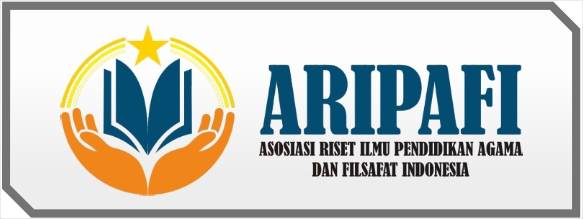Implementasi Nilai-Nilai Kepemimpinan Rasulullah dalam Kepemimpinan Pendidikan Islam di Era Digital
DOI:
https://doi.org/10.61132/reflection.v1i4.162Keywords:
Digitalization, Islamic Education, Islamic Leadership, Social Media, Values IntegrationAbstract
This study explores the integration of Prophet Muhammad's leadership values within Islamic educational institutions, focusing on the challenges and opportunities in the digital age. The primary objective is to analyze how Islamic leadership principles can align with digital advancements while upholding core Islamic values. Using a qualitative approach through document and thematic analysis, this research identifies key challenges, including digital disparities, limited access to technology, and tensions between technological culture and traditional Islamic values. Key strategies are proposed, such as technology-based Islamic leadership training and collaborative efforts to develop digital infrastructure, along with the use of social media as a platform for disseminating Islamic educational values. The findings provide insights into how Islamic educational leadership can adapt in the digital era and suggest future research directions on the role of specific technologies in the application of Islamic leadership.
References
Abu Bakar, N., Abdullah, S., & Jamil, H. (2020). The digital divide in Islamic educational institutions. Journal of Islamic Education, 10(1), 78-92.
Ahmad, M. (2016). Islamic leadership: A framework for success in education. Jakarta: PT Media Muslim.
Al-Ghazali, M. (2000). Ihya Ulum al-Din (The revival of religious sciences). Beirut: Dar al-Ma’rifah.
Al-Ghazali. (2015). Ethics in Islam and technology: A traditional approach. Kuala Lumpur: Islamic Research Press.
Ali, A. (2020). Educational leadership and technological integration in Islamic schools. Journal of Educational Development, 23(1), 47-61.
Ali, A. (2021). The integration of Islamic values in educational leadership training. Journal of Islamic Studies and Education, 13(2), 110-123.
Ali, M. (2018). Digital literacy and Islamic leadership: A comprehensive guide. Jakarta: Pustaka Muslim.
Al-Mawardi. (2004). The ordinances of government. Reading: Garnet Publishing.
Bowen, G. A. (2009). Document analysis as a qualitative research method. Qualitative Research Journal, 9(2), 27-40.
Braun, V., & Clarke, V. (2006). Using thematic analysis in psychology. Qualitative Research in Psychology, 3(2), 77-101.
Creswell, J. W. (2014). Research design: Qualitative, quantitative, and mixed methods approaches (4th ed.). Thousand Oaks, CA: Sage Publications.
Farouk, A. (2021). The role of collaboration in developing digital infrastructure for Islamic education. Journal of Islamic Education Development, 13(4), 202-215.
Hassan, R., & Mahmud, Z. (2022). Social media as a tool for Islamic leadership in education. Journal of Islamic Leadership Studies, 9(3), 145-160.
Iqbal, A. (2019). Islamic values in modern communication: Relevance and challenges. Yogyakarta: Grafindo.
Ismail, S. (2019). Islamic values and the use of social media for da’wah. Journal of Islamic Social Media Studies, 6(2), 78-91.
Kamali, M. H. (2011). The principles of Islamic jurisprudence (3rd ed.). Cambridge: Islamic Texts Society.
McQuail, D. (2010). McQuail's mass communication theory (6th ed.). London: Sage.
Muhammad, A. (2010). The Prophet's leadership model in contemporary contexts. Cairo: Islamic World Press.
Nasir, A. M. (2021). Digital transformation and Islamic educational leadership in the 21st century. Journal of Islamic Education, 8(3), 245-259.
Nasr, S. H. (2001). Islam and the problem of modern science. New York: Oxford University Press.
Nurhadi, A., & Arif, R. (2020). Challenges and opportunities in implementing Islamic values in modern education systems. International Journal of Islamic Studies, 14(2), 130-147.
Patton, M. Q. (2002). Qualitative research and evaluation methods (3rd ed.). Thousand Oaks, CA: Sage Publications.
Rahim, A. (2021). Leadership and technology in Islamic education: An analytical study. Bandung: Nusantara Publishing.
Rahman, F., & Aziz, N. (2020). Developing leadership training based on Islamic values and digital skills. Journal of Islamic Educational Leadership, 12(1), 112-128.
Salleh, K. (2017). Islamic leadership in the modern era. Journal of Islamic Studies, 9(3), 123-135.
Salleh, K. (2018). Balancing technology and Islamic values in education. Journal of Islamic Leadership, 5(3), 145-158.
Sukardi, R. (2020). Digitalization in Islamic education: Opportunities and challenges. Yogyakarta: Cahaya Media.
Tahir, M., & Salim, H. (2021). Integrating technology with Islamic educational values in the era of digitalization. Journal of Educational Innovation and Islamic Studies, 15(1), 33-48.
Tapscott, D. (2009). Grown up digital: How the net generation is changing your world. New York: McGraw-Hill.
Yin, R. K. (2018). Case study research and applications: Design and methods (6th ed.). Thousand Oaks, CA: Sage Publications.
Yusof, N., & Hamzah, A. (2021). Islamic educational leadership in digital age. International Journal of Islamic Educational Management, 12(4), 223-238.
Zulfikar, D., & Rahmatullah, I. (2019). The relevance of Islamic leadership in the age of digital transformation. Islamic Leadership Quarterly, 7(2), 101-116.













